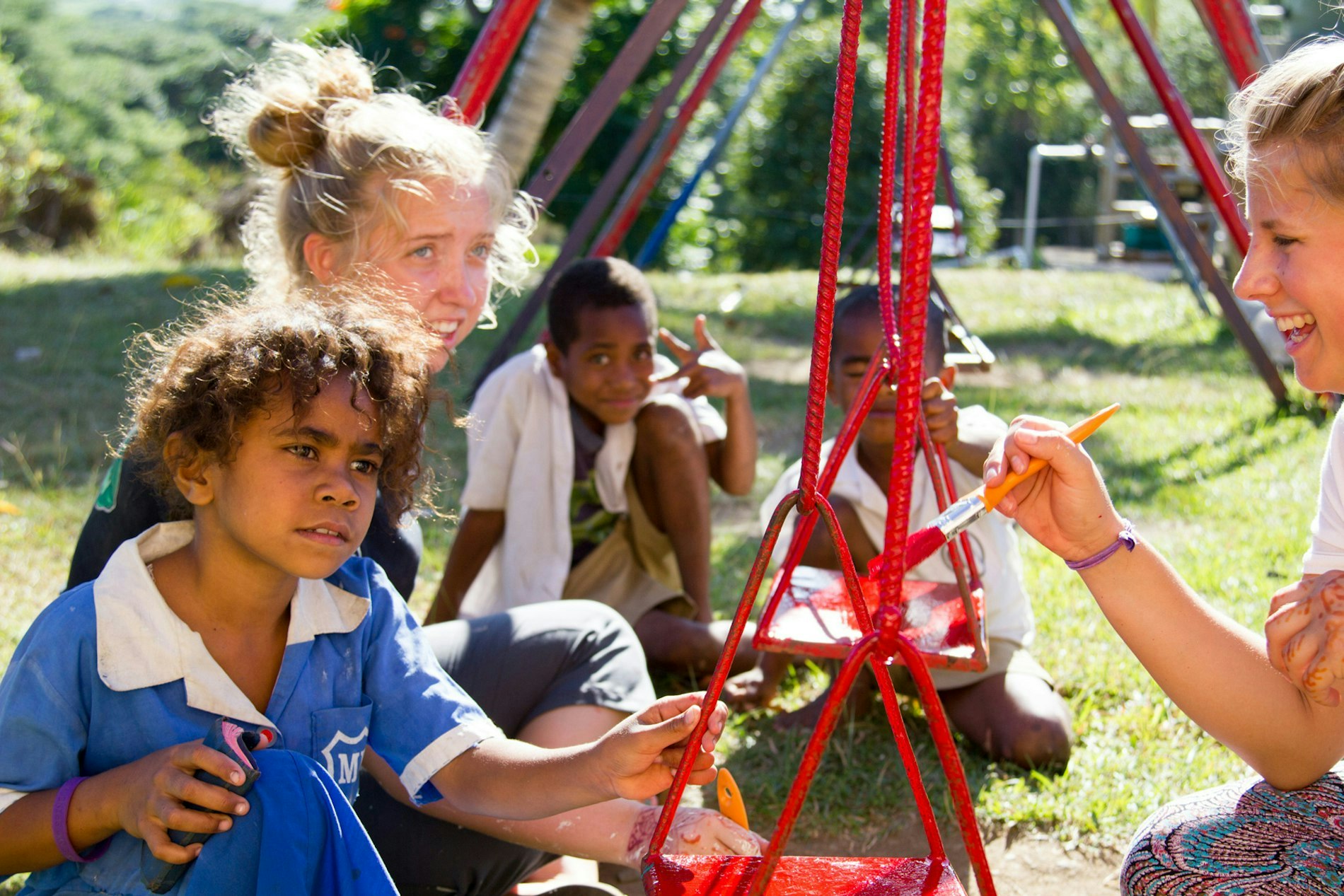Student travel is structured, professionally supervised educational programs that help teens develop independence, cultural understanding, and real-world confidence through immersive experiences abroad. These programs differ from family vacations because they include trained Program Leaders, vetted accommodations, age-appropriate safety, and learning goals that support adolescent development.
Families ready to begin planning can start with the Student Travel Application Process.
This guide explains what student travel is, how it works, and how it supports teen learning, confidence, leadership, and global readiness. It connects you to essential topics including safety, budgeting, preparation, and how to choose the right experience for your teen.
Since 1983, Rustic Pathways has offered student travel programs in 38+ countries, helping more than 155,829 families support teen growth through experiential learning, cultural immersion, and meaningful service.

What Is Student Travel?
Student travel refers to organized educational programs for middle school and high school students ages 12–18. High-quality programs balance experiential learning, professional supervision, and scaffolded independence, giving teens room to grow while ensuring safety, structure, and meaningful engagement with the world.
Most reputable student travel providers operate through staffed in-country teams, established homestays, and vetted accommodations to create culturally rich, developmentally appropriate learning environments.
For example, Rustic Pathways uses dedicated year-round teams to support safety and cultural context. Families who want to understand safety expectations can view the Student Travel Safety Overview.
Many programs include a brief application or readiness check to match students with the right level of challenge and support. Program activities often include:
- Interactive cultural and language immersion
- Service-learning projects with community partners
- Daily mentoring from trained Program Leaders
- Structured reflection and leadership development
- Optional academic enrichment or skill-building modules
Want a deeper explanation of the concept? What Is Student Travel?
Curious about outcomes? Benefits of Student Travel
Comparing different program styles? Student Travel Program Types
Planning ahead and budgeting? Student Travel Program Costs
Preparing for travel? Student Travel Preparation Guide

For parents:
Many families share a similar moment, watching their teen return home more confident, more communicative, and more capable of navigating real-world situations. Student travel works because it blends structured support with meaningful challenge, giving teens experiences they can’t get at home or in the classroom.
Next Steps: Start Planning Student Travel
For families exploring programs for the first time or preparing for a 2026 experience, the resources above will help you compare options, understand costs, and plan confidently.
